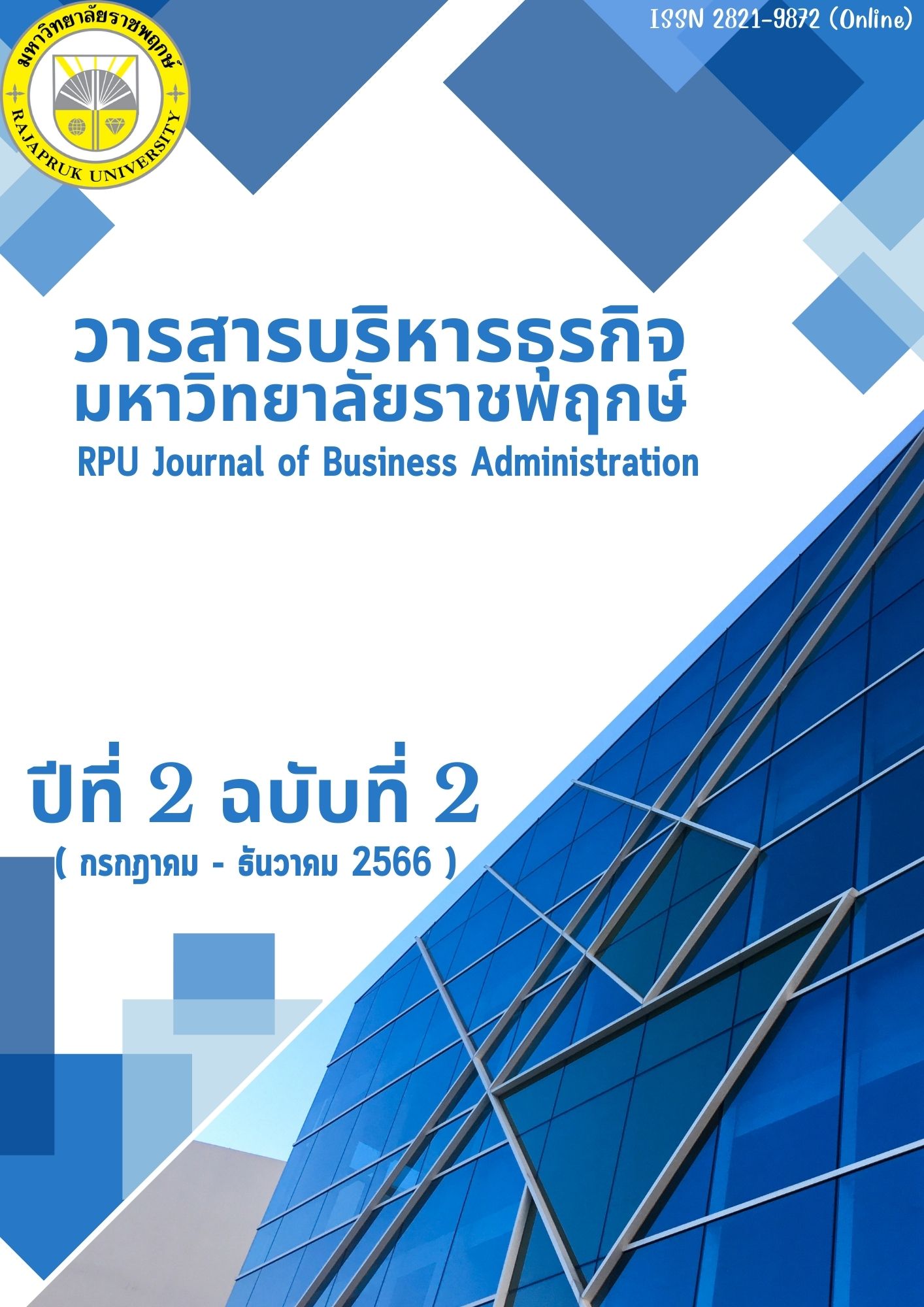Securities Analysis : A Case Study of Kasikorn Bank Public Company Limited
Main Article Content
Abstract
The objective is to study variables that affect the value of KBANK securities. Use relevant variables to forecast operating results. financial status and the company's ratio from 2023-2027 and evaluate the company's business value. The factors that are studied include gross domestic product (GDP), exchange rate, inflation, maximum loan interest rate, and weighted average fixed deposit interest rate. Rates) Important ratios of average Thai commercial banks include loans to deposits (L/D Ratio), net interest income to average interest-earning assets (per year) (NIM), and non-performing loans (NPL). ) to extend the loan that affects the total income of Kasikorn Bank Public Company Limited.By using the Multiple Linear Regression method using the Ordinary Least Square (OLS) method.
From the study, it was found that the factors that affect the total income of Kasikorn Bank Public Company Limited are gross domestic product (GDP) and prime loan interest rate (GDP) equal to 0.6665 (Loan interest) equal to (0.1639). Statistical significance at confidence level 0.05,0.01 The results of the valuation of the company, Method 1. Using the Discount Cash Flow method or DCF, obtained the value of the company's common shares equal to 17.41 baht per share. Method 2. Valuation of the common shares using the residual profit method. equal to 24.67 baht/share and method 3. Multiple Comparable equal to 25.87 baht per share. The appropriate method for evaluating the value of the Company's common shares is the Discounted Cash Flow (DCF) method because it reflects the potential. and the ability to conduct business that may change or has future growth Therefore, the appropriate value of KBANK's common shares is equal to 17.41 - 24.67 baht per share.


